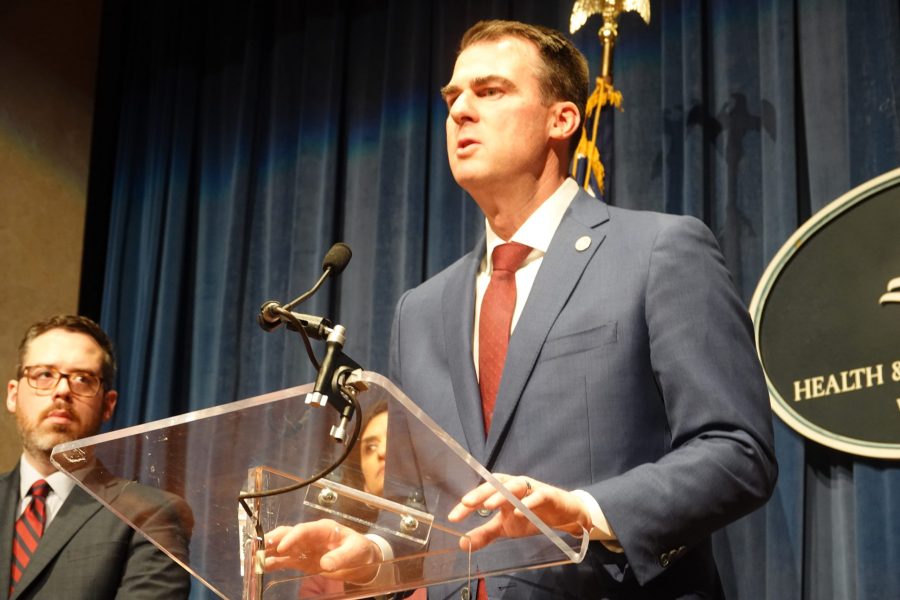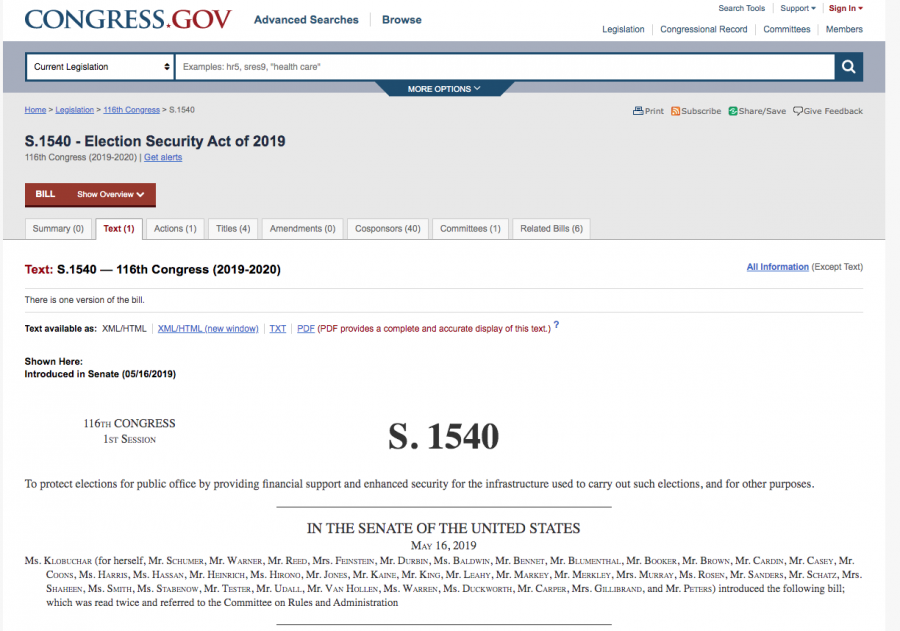WASHINGTON – The U.S. Senate overwhelmingly approved a long-awaited disaster supplemental bill that would provide aid to storm-ravaged Oklahoma and other states hit by hurricanes, wildfires, earthquakes and volcanoes.
Passed by a vote of 85 to 8, the $19.1 billion bill, H.R. 2157, went back to the U.S. House where plans to fast-track it to President Trump’s desk were upended unexpectedly by an objection from Texas Republican Rep. Chip Roy.

“I objected primarily because had I not, Congress would have passed into law a bill that spends a significant amount of taxpayer money without members of Congress even being present in our nation’s Capital to vote on it,” Roy said.
Before the House could hold a final vote on the bill, lawmakers had left Washington to begin their annual week-long recess to observe Memorial Day.
Under the House rules, Roy’s objection could delay a final vote on the bill until the week of June 6 when lawmakers.
Oklahoma’s two U.S. senators – Republicans Jim Inhofe and James Lankford – joined in the huge bipartisan vote in their chamber to approve the bill.
“Rebuilding and recovering from natural disasters is something we’re all too familiar with in Oklahoma,” Inhofe said, blaming partisan gridlock for blocking an earlier Senate vote.
Largely over disagreements on how much additional aid should be provided to Puerto Rico, the measure had been delayed for months. Lankford called on Congress in the future to include additional funding annually to make disaster assistance more transparent and predictable.
“(The) vote is important for many Oklahomans as we endure a long stretch of severe storm damage across the state,” he said. In an earlier statement on the Senate floor, Lankford said Oklahoma communities were still reeling from flash floods and tornadoes that numbered more than 15 over a 48-hour period.
“The flooding has been far worse than the tornadoes and the high winds,” he said.
Sen. Mitt Romney of Utah, one of eight Republican senators to oppose the bill, said it had been “loaded up with billions of dollars in unrelated pet projects.”
“I promised the people of Utah that I would not be a rubber stamp for wasteful spending bills that drive up our already skyrocketing national debt, and I cannot in good conscience support it,” Romney said.
Senate targets robocalls
On another vote, Lankford also supported S. 151, a bill to crack down on “illegal and abusive” robocalls that passed by a vote of 97 to 1. Inhofe did not vote. An aide said the senator wanted to be with his wife, Kay, who had broken her leg and underwent two surgeries the day of the vote.
Sponsored by Sen. John Thune (R-S.D.) the TRACED Act would give regulators more time to find scammers, increase civil forfeiture penalties for such crimes and promote call authentication and blocking
adoption.
House takes step to restore CFPB power
Over in the U.S. House of Representatives, the legislative schedule was relatively light.
By a vote of 231 to 191, the House passed H.R. 1500, the Consumers First Act, introduced by Rep. Maxine Waters (D-Calif.), chairwoman of the House Financial Services Committee.

Waters said her bill restores powers of the Consumer Financial Protection Bureau, which was established following the financial crisis several years ago to protect consumers from certain financial products and services deemed harmful.
She has been especially critical of what she sees as the Trump administration’s efforts to weaken the bureau.
For years, Republicans have been critical of the bureau, warning that it was established without the necessary controls to assure accountability.
Oklahoma’s House delegation split along party lines on the floor vote with Rep. Kendra Horn (D-OK5) supporting the measure and Reps. Kevin Hern (R-OK1) Markwayne Mullin (R-OK2), Frank Lucas (R-OK3) and Tom Cole (R-OK4) opposing it.
Nearly all support retirement changes
By a lopsided vote of 417 to 3, the House also approved H.R. 1994, Setting Every Community Up for Retirement Enhancement (SECURE) Act of 2019.
All five lawmakers from Oklahoma — Hern, Mullin, Lucas, Cole and Horn – voted for the bill.
“With passage of this bill, the House made a significant progress in fixing our nation’s retirement crisis and helping workers of all ages save for their futures,’ said Rep. Richard Neal (D-Mass.) chairman of the House Ways and Means Committee and the bill’s sponsor.
Neal said the bill would close loopholes and help employees of small businesses and those who work part-time to save for retirement.
Infrastructure deal off table for now
Even with the developments on the disaster supplemental bill, the week will no doubt will be remembered for a much-anticipated meeting on infrastructure between President Trump and top congressional Democrats.

Trump was expected to discuss how he thought a massive $2-trillion infrastructure could be paid for, and Democrats were counting on his support to help them get such a bipartisan effort through a divided Congress.
Instead, the White House meeting abruptly imploded after House Speaker Nancy Pelosi (D-Calif.) just hours before accused the president of engaging in a coverup for not cooperating with various Democratic-led investigations that followed the recently completed Mueller report.
Trump indicated he would not work with Democrats on infrastructure or possibly any other issue as long as they insisted on continuing with their investigations.
Essentially, he gave them a choice: legislate or investigate.
A war of words, especially between Pelosi and Trump, continued through the rest of the week.
Even the most ardent supporters of passing an infrastructure measure have warned time may be running out for such a deal.
Lawmakers are scheduled to be away from Washington in the coming week as they observe their annual Memorial Day break.



